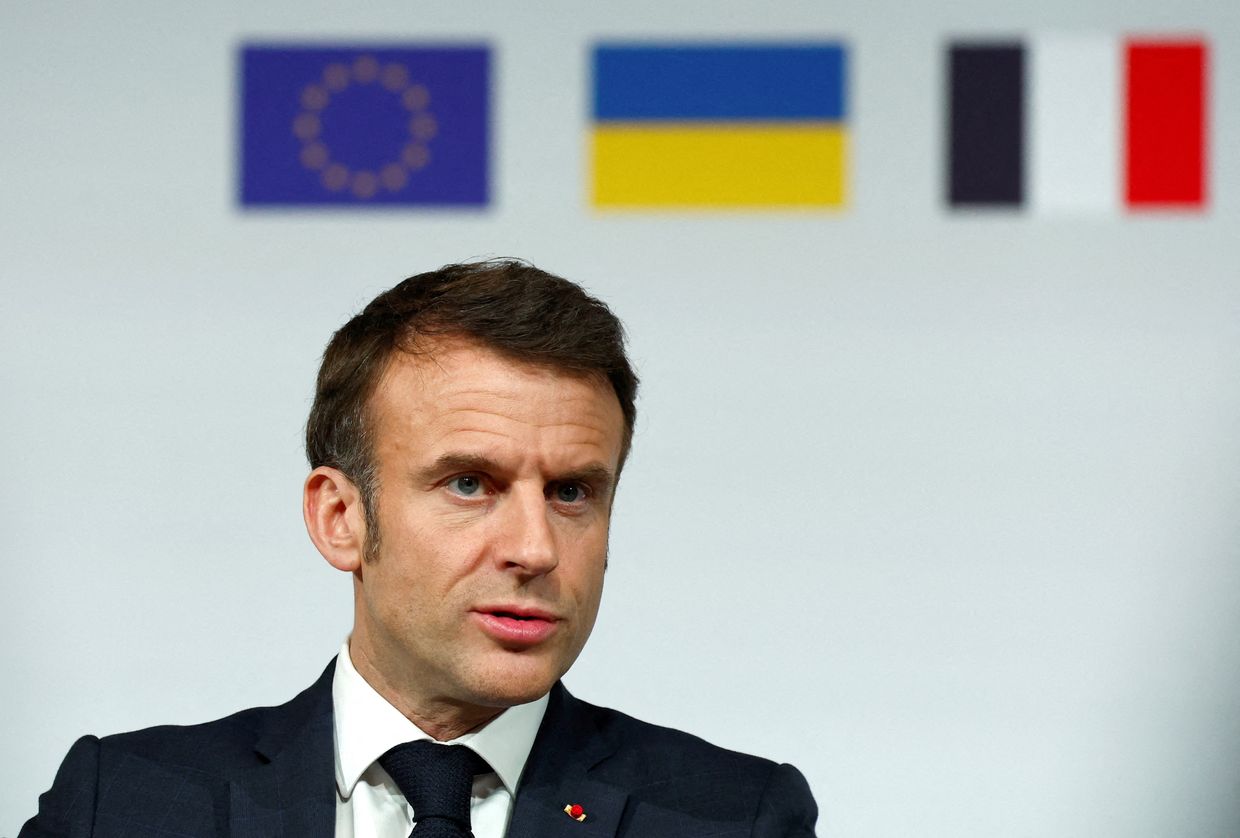Le Monde: France examining idea of sending troops to Ukraine since June 2023

The French authorities have been examining the idea of whether to send "boots on the ground" into Ukraine since June 2023 "in the greatest secrecy," Le Monde reported on March 14.
French President Emmanuel Macron remarked on Feb. 26 that sending Western troops to Ukraine could not be "ruled out," prompting the U.S., European allies, and NATO Secretary-General Jens Stoltenberg to distance themselves from the statement.
Macron's announcement was not "an improvised escalation," but a "strategic message," Le Monde said. Nevertheless, German Chancellor Olaf Scholz and U.S. President Joe Biden were reportedly "stunned by Macron's wording."
According to Le Monde, the topic was discussed during a National Security and Defense Council meeting on June 12, 2023.
National Security and Defense Council meetings are highly confidential and attended by the French president, senior ministers, and other high-level figures upon presidential invitation.
While Macron initially kept diplomatic lines with Russian President Vladimir Putin open, the French President began to find that in "call after call," Putin was "no longer articulating a strategic goal," Le Monde said.
Macron undertook a "conversion" in June 2023, and spoke out in favor of Ukraine joining NATO "to send a strong signal to Putin."
The failed counteroffensive during the summer of 2023, when the Ukrainian army was unable to break through Russian defensive lines, reportedly added to the sense of urgency to discussions in Paris.
The Ukrainian military's struggles to hold back the Russian army became a "cause for concern" into the winter.
According to Le Monde, Macron remarked on the evening of Feb. 21 that "in any case, in the coming year, I'm going to have to send guys to Odesa."
President Volodymyr Zelensky told French broadcaster BFMTV on March 11 that "as long as Ukraine holds, the French army can stay in French territory," and that French soldiers "will not die in Ukraine."














